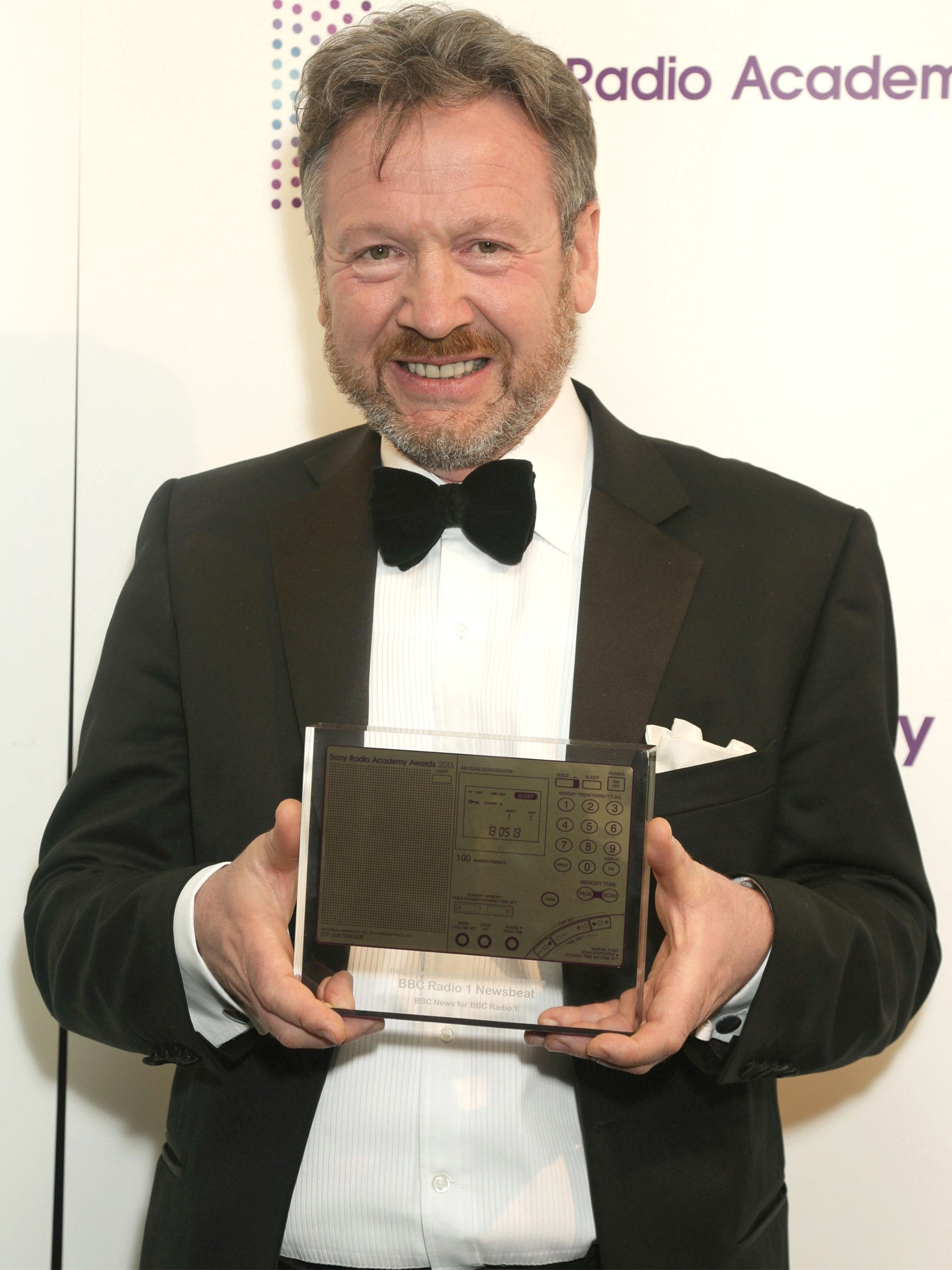‘Newsbeat’ chief Rod McKenzie moved after complaints of bullying from over 30 BBC staff
The allegations against Mr McKenzie are spread over two decades

The BBC has moved one of its senior news executives from his job in charge of Newsbeat, the broadcaster’s youth news service, following complaints from more than 30 members of staff over his alleged bullying management style, The Independent has learnt.
Rod McKenzie, Newsbeat’s long-standing editor and a former presenter, has denied any wrongdoing during a BBC disciplinary process that has lasted for almost a year. Mr McKenzie was last year considered a possible new controller of speech-based network BBC Radio 5 Live in Salford.
But the BBC’s Head of Programmes Ceri Thomas has briefed Newsbeat’s staff to tell them that Mr McKenzie is to be moved out of the BBC’s network news department to another part of the corporation in an unknown role.
It is understood that Mr McKenzie has been given a final written warning and is taking one month’s leave. There is unhappiness at the outcome among complainants, some of whom have left the BBC.
The Independent reported this week that eight members of BBC staff were disciplined for bullying or sexual harassment in the first nine months of last year but only one was dismissed. “It’s not the case that there is no room for bullies at the BBC. There are just different places for them,” said one source.
The complaints against Mr McKenzie formed part of a review last year led by Dinah Rose QC into allegations of bullying and other forms of harassment at the BBC.
The allegations of bullying against Mr McKenzie were spread over two decades. He was alleged to have had his favourites within the Newsbeat team and to have “frozen out” those whom he did not like, shouting at individuals in front of other staff. Mr McKenzie continues to protest his innocence, believing he has been the victim of a social media campaign.
A source close to him said: “He strongly rejects these claims and maintains that his behaviour is entirely in keeping with a pressurised news environment.” Mr McKenzie was said to be pleased that some of the “most lurid” claims about him were not upheld.
He is said to have disputed that he had favourites, arguing that “a favourite is a high achiever by another name”.
The BBC’s disciplinary process did not uphold claims against Mr McKenzie that he brought prejudices to the process of deciding which members of staff lost their positions as part of the BBC’s Delivering Quality First efficiency savings process.
Mr Thomas told Newsbeat staff that McKenzie had been the subject of “many more expressions and testimonials of support than criticism”.
Mr McKenzie is described by colleagues as a “complex” character. Following the “Sachsgate” furore over comments made by Russell Brand and Jonathan Ross on the voicemail of actor Andrew Sachs and broadcast on BBC Radio 2, Mr McKenzie wrote a blog in which he claimed criticism of the presenters was based on “synthetic” anger and driven by “salary envy and Schadenfreude”.
The BBC is under pressure to address internal bullying after Ms Rose’s “Respect At Work” review received submissions from 930 people. Parts of the subsequent report made “uncomfortable reading”, said the BBC Director General,Tony Hall.
“We need to be honest about our shortcomings and single minded in addressing them. I want zero tolerance of bullying and a culture where people feel able to raise concerns and have the confidence that they will be dealt with appropriately,” he added.
The BBC said: “We do not discuss internal staff or disciplinary issues.”
Bookmark popover
Removed from bookmarks